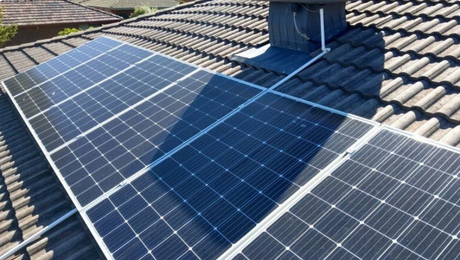Installing home solar panels can provide you and your family with several incredible benefits. On top of reducing your impact on the environment, increasing your home’s value, and decreasing your odds of losing power, solar panel kits can save you a ton of money.
Not only does using solar energy lower your utility bills, but you can potentially take advantage of solar net metering programs, too. These discounts will reduce your bills even further and essentially pay you for the excess power you produce in the form of energy credit.
If you’re interested in learning more about home net metering and how solar panels installation can save you money on your electric bills, read on for all you need to know.
What Is Solar Net Metering?
Solar net metering, otherwise known as home net metering, is an agreement you can make with your local utility company to connect your home solar energy system to the power grid to provide it with the solar electricity you do not use.
The utility company can then credit you for the extra energy, reducing your monthly electric bill.
Why does this program exist? Well, your home solar system may frequently generate more electricity than you and your family will be able to use in a month. Solar net metering is a terrific way to capitalize on solar panel efficiency to save even more money on your utility bills than you would with your solar panels alone. In certain instances, you may even find that your net electricity is zero by the end of the month, meaning your energy bill will be $0.
However, it’s important to note that in most cases, home net metering can only earn you energy credits that go toward your utility bills. If you were to provide more energy than you used in a given month, you would only be entitled to energy credit that can roll over for up to 12 months, not any form of monetary compensation. Still, you’ll undoubtedly be able to stow away some extra cash with your utility bills drastically reduced.
How Does Solar Net Metering Work?
To become a part of your local home net metering program, you first need to make sure that your province actually has one that can benefit you. We will cover that in greater detail below.
For now, let’s take a look at how to get involved in your area’s solar net metering program, assuming it would in fact benefit you.
First, you’re going to need to make sure that your electricity provider approves your home solar installation project. You should not buy or install any home solar equipment before receiving approval, or you may find out that you do not qualify for the home net metering program in your area, which could wind up being quite a disappointment.
After you’ve had your home solar project approved, you must apply to connect your energy source to the electricity grid and become a home net metering customer. Net metering guidelines vary depending on the program you’re applying for, so it’s best to make sure you understand the policies in your area before you make any solar panel system purchases or installations.
Once your electric company approves your project, it will determine your monthly bill by subtracting the kilowatt-hours you’ve provided the grid from the kilowatt-hours you’ve used. If you produce more electricity than you use that month, you’ll be able to roll those energy credits over to the following month for up to 12 months, depending on the program in your area.
Benefits of Home Net Metering
By now, you’ve probably got a good idea of just how beneficial a home net metering program can be for any solar customers who produce excess electricity. Still, we’re willing to bet that the advantages of net energy metering go even further than you realize. Read on to learn more about all of the incredible benefits of taking part in your local solar net metering program.
Saving Money on Your Electric Bills
Far and away, the most helpful advantage of home net metering is all of the money you can save on your utility bills. With a big enough rooftop solar system (use this solar panel calculator to determine your needs), you can bring your energy bills down to nothing at all. Even if you don’t have a system that big, you’ll still be saving tons of money every year by simply having your solar energy system connected to the electric grid. That can amount to tens of thousands of dollars in savings across the lifespan of your home solar system.
Make Up the Cost of Your Home Solar System Faster
It’s no secret that your solar electricity system is going to require a significant initial investment. After all, solar companies can’t just give their products away for free. However, after that initial investment, it’s only a matter of time before you’ve saved more money with your home solar system than you spent on it. With a home net metering program, making back the money you spent on your solar panels will be a much faster process, which should make that initial investment a lot easier for you to make.
Avoid Expensive Energy Storage
If you don’t use a solar net metering program, the excess energy your solar panels produce will need to be stored in batteries. That means that not only will you have to spend more money on your home solar system, but you’ll also have to pay your solar installer more money to set up your excess energy storage system. This process could very well cost you a few thousand dollars, and it will also mean that you’re not getting the financial benefits of home net metering.

Reduce Stress on the Electrical Grid
While those that don’t have a home solar system strictly draw energy from their local power grid, you can actually give energy to the grid, reducing pressure on the system and allowing it to meet the energy demands of the utility company’s other customers. Adding solar energy to your local grid also means that you’re reducing stress on the environment by utilizing the power of the sun rather than non-renewable resources.
Types of Solar Net Metering Agreements
Depending on the specific guidelines in your area, your home net metering program may offer one or more of the three different net metering agreements. Read on to learn what those three various agreements are.
Virtual Net Metering
Virtual Net Metering, or VNM, is a solar net metering system that allows consumers to share the energy credits received from a community solar project. That means that you receive a credit equivalent to the percentage of the panels you own in your community solar system.
Aggregate Net Metering
Aggregate Net Metering, or ANM, is a solar net metering system that allows multiple electrical power users in a single building to earn solar credit from a single solar energy system. For example, an apartment building using solar energy can spread its credits across each tenant equally.
Remote Net Metering
Remote Net Metering, or RNM, is a solar net metering system that allows non-residential or farm customers with solar energy systems to use the excess energy they generate to save them money on their electric bills at a separate location.
Does My Province Offer Net Metering?
All provinces do offer a net metering program. However, they are not all the same. Below are the different programs provided by each province in Canada.
Alberta:Alberta Micro-Generation
British Columbia:BC Hydro Net Metering Program &Fortis Net Metering Program
Manitoba: Customer-Owned Generation
New Brunswick: NB Power Net Metering Program
Nova Scotia:Enhanced Net Metering
Northwest Territories:Net Metering
Ontario:Net Metering
Prince Edward Island:Net Metering
Quebec:Hydro-Quebec Net Metering
Saskatchewan: Net Metering Program
Nunavut:Micro-Generation Program
It’s essential to do your research before deciding to follow through with any home solar installation projects. Be sure to do your due diligence!
Conclusion
We hope this article helped you better understand how net metering programs can help you take full advantage of your home solar system. Converting over to electrical power is perhaps first and foremost an excellent way for you to reduce your impact on the environment. It can also prove to be incredibly financially beneficial to you at the same time.
With the money you wind up saving using a solar net metering program, you may very well be able to earn money back that you invested in your home solar system multiple years faster. That can be the difference between outfitting your home with a brand new solar panel system and increasing your independence or sticking to taking your energy from the grid indefinitely.
If you’re interested in investing in a solar panel system for your home, be sure to look into your province’s net metering program first. Remember that you should always make sure your electric company approves your system before making any purchases or installations. Good luck!









